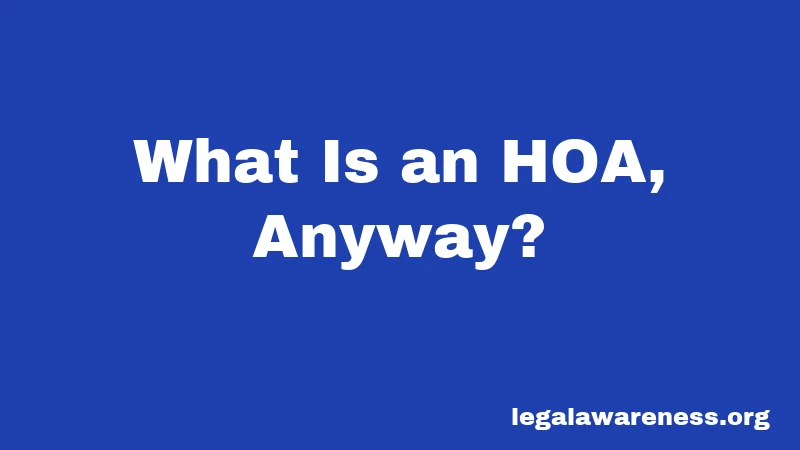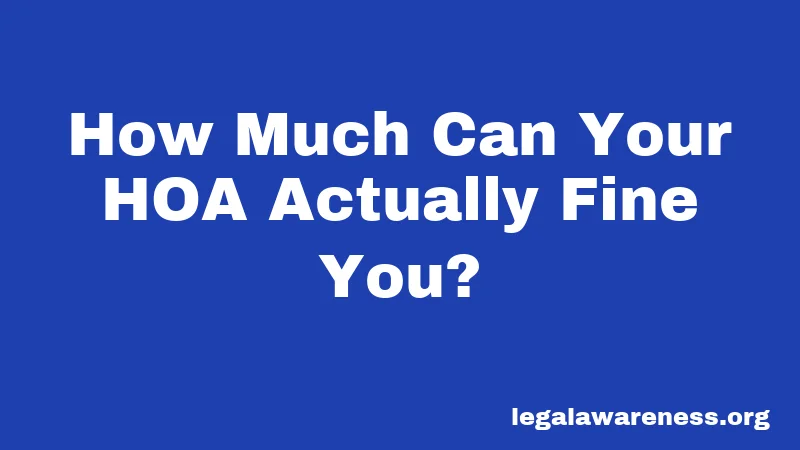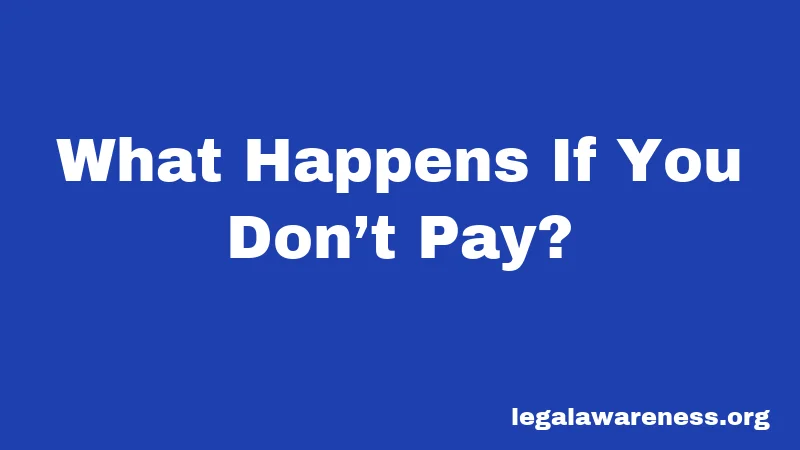Florida HOA Laws in 2026: Your Rights and What Changed
Most people have no idea how much their HOA can actually do. And honestly? That changes pretty much everything when you find out what’s legal.
In Florida, homeowners’ association laws just got a major upgrade. The rules changed. What your HOA can fine you for changed. How they have to treat you changed. And if you’re living in an HOA community, you need to understand exactly where you stand.
What Is an HOA, Anyway?

Think of an HOA as a local government for your neighborhood. It’s a legal organization made up of homeowners. They collect fees from you. They make rules. They decide how the community looks and operates. Pretty straightforward, right?
Here’s where it gets important: Florida law controls what HOAs can actually do. And Florida law has gotten a lot stricter. The state passed major changes starting in July 2024 and continuing through 2025-2026. These laws protect your rights while keeping communities running smoothly.
Stay with me here. Understanding these rules could literally save you thousands of dollars.
The Big Changes in Florida HOA Law
Starting in January 2025, Florida made some serious changes. House Bill 1203 was the game-changer. It brought comprehensive reforms to how HOAs operate across the entire state.
The changes focus on three main things: more transparency, more accountability, and stronger protections for homeowners like you.
How Much Can Your HOA Actually Fine You?

Okay, this one’s important.
Your HOA cannot fine you unlimited amounts. Florida law sets strict limits. HOAs can impose reasonable fines of no more than $100 per violation against homeowners or their tenants, guests, or invitees. Pretty clear, right?
But here’s where people get confused. If a violation continues day after day, the HOA can keep levying fines. However, the total cannot exceed $1,000 unless your specific governing documents allow for more.
Think of it like a traffic ticket system. One violation, one fine. Multiple violations? The fines add up, but there’s a ceiling.
The HOA also cannot fine you for really minor stuff anymore. You cannot be fined for leaving garbage receptacles out within 24 hours of collection day. And if your holiday decorations are up? The HOA must give you a week to take them down after they notify you in writing.
What changed? New laws now restrict HOAs from fining residents for minor infractions like garbage placement, aiming to prevent punitive measures for trivial matters.
What About Those Notices and Hearings?
Not sure what the process actually is if your HOA wants to fine you? Good question—most people don’t know.
Before the HOA can fine you, they must follow strict procedures. Here’s exactly what has to happen:
First, you get written notice. The HOA must provide at least 14 days’ written notice of your right to a hearing. This notice needs to explain what you did wrong. It needs to say how you can fix it. And it needs to tell you when your hearing will be.
Next comes the hearing. Hearings must be held within 90 days of issuing the notice, and they’re conducted by a committee of at least three impartial members of the HOA board. You can attend in person, by phone, or online. You get to present your side of the story.
After the hearing, here’s what matters: the committee’s decision must be communicated within seven days post-hearing. If they decide you owe a fine, you don’t have to pay it right away. The fine cannot be due fewer than 30 days after you receive written notice.
Honestly, this is the part most people miss. Your HOA literally cannot fine you without giving you all these opportunities to be heard. It’s built-in protection.
What Happens If You Don’t Pay?

So your HOA levied a fine. You haven’t paid it. What comes next?
Here’s a relief: under Florida law, the HOA cannot place a lien on your property for fines under $1,000. That’s huge protection. A lien could affect your ability to sell your home. But for regular fines? They can’t do it.
That doesn’t mean there are zero consequences. The HOA can:
Send demand letters asking for payment. They’ll explain the amount and what they’ll do if you don’t pay. They can also suspend your use of community amenities. So if you’re not paying a fine, your pool access could get suspended until you settle up.
But fines over $1,000? That’s when liens become possible. And liens are serious. They follow your property. If you ever want to sell, the lien could block the sale until it’s paid.
Understanding Assessments (These Are Different From Fines)
Wait, pause. Read this carefully.
A lot of people confuse HOA fines with HOA assessments. They’re completely different. And this matters.
An assessment is your regular HOA dues. It pays for common area maintenance, community amenities, and shared services. Everyone pays it. Most people pay it automatically without thinking about it.
Assessments are a different beast entirely. If you don’t pay your regular assessments, that’s way more serious than unpaid fines. The HOA can place a lien on your property for unpaid assessments. They can even foreclose on your home eventually.
The HOA must give you notice before they can file a lien. They must issue a demand letter stating the amount of the outstanding debt and give you 45 days to pay.
Not paying assessments? That’s the financial emergency. Unpaid fines? Bad, but different.
What’s New About Your Rights?
Okay, here’s where it gets good for homeowners.
Florida completely revamped homeowner protections in 2024-2025. These changes were designed to strengthen homeowner rights, increase transparency, and hold HOA boards more accountable.
What does that actually mean for you? Let me break down the major wins:
You have the right to know everything. Any Florida HOA or condominium association with 100 or more units must maintain a website or mobile app by January 1, 2025, where residents can access essential documents. This includes governing documents, meeting minutes, budgets, and financial reports. No more “you can’t see those documents” responses.
Your HOA cannot tell you how to park your vehicle. You can park any personal vehicle, including pickup trucks, in your driveway regardless of HOA rules. Also, first responders can park work vehicles on public roads without HOA interference. That’s new protection.
You get real transparency about finances. HOAs are required to provide detailed financial disclosures to their members, including preparing and distributing quarterly financial statements. You can actually see where your money goes now.
Board members face stricter training requirements. Board members are now required to complete state-approved educational courses that cover financial literacy, recordkeeping, and governance responsibilities. This means the people running your HOA actually know what they’re doing.
Structural Inspections and Reserve Studies
Here’s something important if you live in a condo or multi-unit property.
The new laws mandate regular reserve studies and structural inspections to ensure the long-term structural integrity of community properties. What does that mean practically?
Any Florida condominium building that is three stories or taller and 25 to 30 years old must undergo its first inspection by January 1, 2025. These are mandatory. Your HOA board can’t skip them. This protects you because it identifies potential safety issues before they become disasters.
Also, HOAs are required to conduct reserve studies at least once every three years to assess the financial needs for future repairs and replacements. This means they’re planning ahead. They’re not going to surprise you with massive special assessments because they failed to plan.
Recent Changes About Mediation and Disputes
Florida emphasizes solving conflicts without going to court. And that’s good news for everyone.
One significant change is the introduction of mandatory mediation processes before any litigation can proceed. If you and your HOA get into a real dispute, you have to try to work it out together first. This saves money. It saves time. It’s better for the community.
If both sides can’t reach agreement in mediation, then you can go to court. But most people figure things out before then.
Criminal Penalties for HOA Corruption
Wondering if there are consequences for bad behavior on the HOA board?
Absolutely. And they’re serious now.
The new laws introduce stricter penalties for HOAs that fail to comply with established regulations, including criminal penalties for financial mismanagement and fraudulent activities. We’re talking about real legal consequences.
Here are the specifics: accepting kickbacks or other unethical financial gains can lead to felony charges of the third degree. Board members who deliberately hide records or commit fraud can face serious time.
Also, it is a third degree felony for an officer, director, or manager of an association to knowingly solicit, offer to accept, or accept a kickback.
This basically means: Florida is done with corrupt HOA boards. If your board is doing sketchy financial stuff, there’s legal recourse now.
What About Debit Cards and Financial Controls?
Suspicious about how your HOA spends money?
One of the coolest changes: associations are prohibited from using debit cards issued in the name of the association for payment of any association expense. This sounds small, but it’s huge. It prevents board members from making unauthorized purchases and hiding them.
Every dollar spent has to be documented. Every transaction can be traced. This is basic accounting practice. And now it’s mandatory.
Penalties for Violating Your Rights
What happens if your HOA breaks these rules?
Failure to make records accessible to members within ten business days of a request can result in minimum damages of $50 per day, up to ten days, beginning on the 11th business day after the request. So if your HOA stonewalls you? You can potentially sue for damages.
The HOA has to follow the law. If they don’t, you have legal options.
What About Rent and Short-Term Rentals?
Different HOAs have different rules about renting out your home. Some allow it freely. Some have restrictions. Some require approval.
Because Florida attracts tourists in warmer seasons, some HOAs set rules on minimum lease terms, guest background checks, or rental frequency. Your specific HOA’s governing documents control this. But the HOA cannot completely ban you from renting without specific language in your documents allowing that.
Also, remember: these guidelines must comply with fair housing laws, particularly for residents who need service animals or emotional support animals. No matter what your HOA rules say, fair housing laws override them.
Pet Policies: What the HOA Can and Cannot Do
Pet rules are super common in HOAs. But they have limits.
Guidelines may address how many pets a resident can have, whether larger dog breeds are permitted, and how pets must be leashed in common areas. That’s totally legal.
BUT—and this is big—your HOA cannot prohibit or restrict service animals or emotional support animals. Fair housing law protects these animals. No HOA rule beats federal law.
Frequently Asked Questions
Can my HOA raise assessments whenever they want?
No. Your governing documents control this. Many HOAs have limits on annual increases. And the HOA must disclose their reserve funding plan to you. If they’re raising assessments significantly, they need a good reason, and you have a right to understand it.
What if my HOA is run by corrupt people?
You have options. You can attend board meetings, vote in elections, and petition for changes. You can request all financial documents. And if you find evidence of fraud or mismanagement, you can report it to the Florida Department of Business and Professional Regulation. The new laws introduce stricter penalties for fraudulent activities and financial mismanagement by board members.
Can the HOA enter my house without permission?
Not really. There is no law granting an HOA an inherent right to enter a homeowner’s property. However, most HOA governing documents do allow entry for maintenance of common elements like balconies or shared utilities. Those provisions are enforceable.
What if I disagree with a fine that was levied?
First, make sure the HOA followed all the procedures. Did they give you 14 days’ notice? Did you get a proper hearing? Did an impartial committee decide? If they skipped steps, you have grounds to challenge the fine. If they followed procedures but you still think it was unfair, you can negotiate or pursue legal action.
When do new HOA rules take effect?
Most changes from House Bill 1203 are effective now. Some took effect July 1, 2024. Others took effect January 1, 2025. Website requirements, financial reporting, and transparency rules are all active. Mediation requirements are active. Board member training requirements are active. Ask your HOA for a summary of what applies to your community.
Final Thoughts
Florida’s HOA laws got a lot stronger in 2024-2025. Homeowners have more protection. HOAs have more accountability. Transparency is no longer optional.
The bottom line: know your rights, read your governing documents, attend board meetings, and ask questions. Your HOA is supposed to serve the community, not control it. And now, Florida law makes sure that actually happens.
When in doubt about a specific situation, consult with an attorney who specializes in HOA law. It’s worth it to understand your rights fully.
References
- Florida Statutes Chapter 720 – Homeowners’ Associations: https://www.leg.state.fl.us/statutes/index.cfm?App_mode=display_statute&URL=0700-0799/0720/0720.html
- House Bill 1203 (2024) – Comprehensive HOA Reforms: https://www.flsenate.gov/Session/Bill/2024/1203
- Florida Division of Florida Condominiums, Timeshares and Mobile Homes: https://www.dbpr.state.fl.us/
- Community Associations Institute – Florida Resources: https://www.caionline.org/
- Florida Office of Attorney General – Consumer Protection: https://www.myfloridalegal.com/
